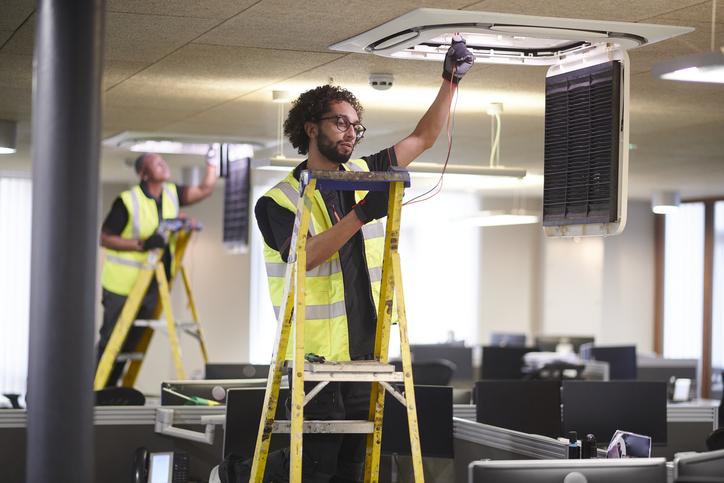Energy-efficient air conditioning services enhance home comfort and play a crucial role in protecting the environment. By reducing energy consumption and minimizing greenhouse gas emissions, energy-efficient AC systems support a more sustainable future. This article on AC services delves into the key environmental benefits of upgrading to an energy-efficient AC system.
1. Reduced Energy Consumption
Energy-efficient AC systems use advanced technology to cool your home more effectively while consuming less electricity. By lowering your energy usage, you decrease the demand for power plants, which can lead to fewer fossil fuels being burned and a reduction in overall energy consumption.
2. Lower Greenhouse Gas Emissions
Energy-efficient AC systems help reduce greenhouse gas emissions, which are a major contributor to climate change. Traditional air conditioning units often rely on older, less efficient technologies that consume more energy and produce more carbon dioxide (CO2). In contrast, energy-efficient models use modern technology to achieve the same cooling effect with fewer emissions, helping to mitigate the impact of global warming.
3. Decreased Air Pollution
Energy-efficient AC systems also help decrease air pollution by consuming less energy. Power plants that generate electricity often burn fossil fuels, releasing pollutants such as sulfur dioxide, nitrogen oxides, and particulate matter into the atmosphere. Reducing energy consumption through efficient AC systems can lead to fewer pollutants being released into the air, improving overall air quality and contributing to a healthier environment.
4. Lower Carbon Footprint
Upgrading to an energy-efficient AC system can significantly lower your carbon footprint. Your carbon footprint is a measure of the total greenhouse gases you are responsible for emitting, including those from energy consumption. By using less electricity and reducing your overall energy use, you decrease the amount of CO2 and other greenhouse gases associated with your home’s cooling needs, contributing to a smaller environmental impact.
5. Improved Resource Conservation
Energy-efficient AC systems contribute to the conservation of natural resources. Reducing energy consumption means less strain on energy resources such as fossil fuels and natural gas. Additionally, energy-efficient systems often use environmentally friendly refrigerants that have a lower impact on the ozone layer compared to older refrigerants. By conserving resources and reducing the use of harmful substances, energy-efficient AC systems support long-term environmental sustainability.
6. Extended Equipment Lifespan
Energy-efficient AC systems are often built with advanced technology and high-quality components that can extend the equipment’s lifespan. Longer-lasting systems mean fewer replacements and less waste generated over time. By investing in a durable, energy-efficient AC system, you contribute to reducing the environmental impact associated with manufacturing, transporting, and disposing of cooling equipment.
7. Enhanced Building Efficiency
Installing an energy-efficient AC system can improve your building’s overall efficiency. Energy-efficient systems often include features such as programmable thermostats and advanced insulation, which work together to optimize energy use. This enhanced efficiency not only reduces your energy bills but also minimizes the environmental impact of your home’s cooling needs by ensuring that energy is used more effectively.
The environmental benefits of AC services are significant and far-reaching. By reducing energy consumption, lowering greenhouse gas emissions, and conserving natural resources, energy-efficient AC systems play a crucial role in supporting a sustainable future. Upgrading to an energy-efficient system is a proactive step towards minimizing your environmental impact and contributing to a greener planet.
For superior services, contact us at Aaron & Trecker Heating & Air Conditioning today. Call 847-540-9585 to take the first step towards a greener, more sustainable future!






